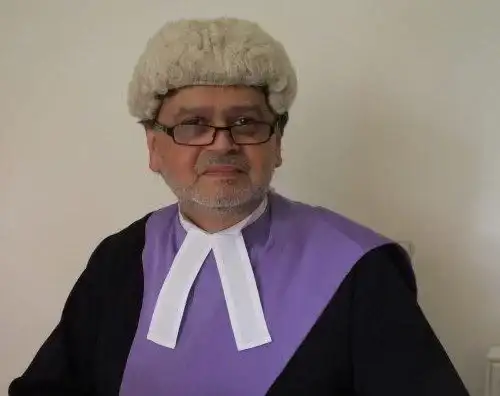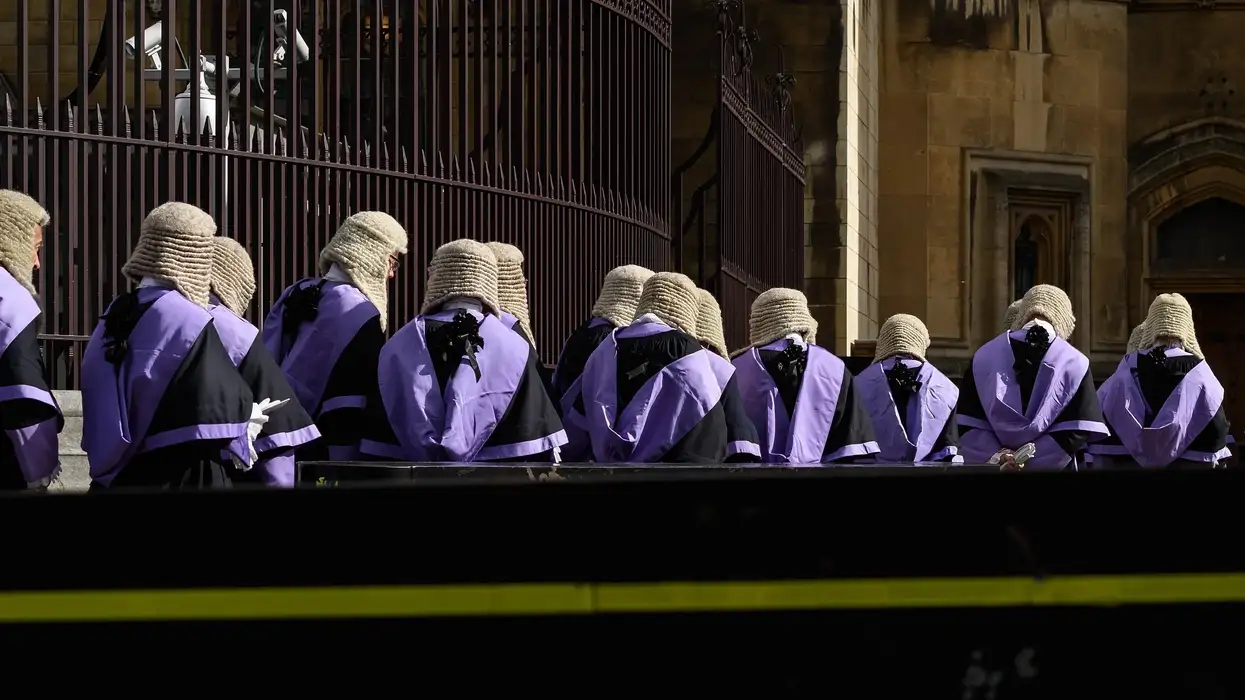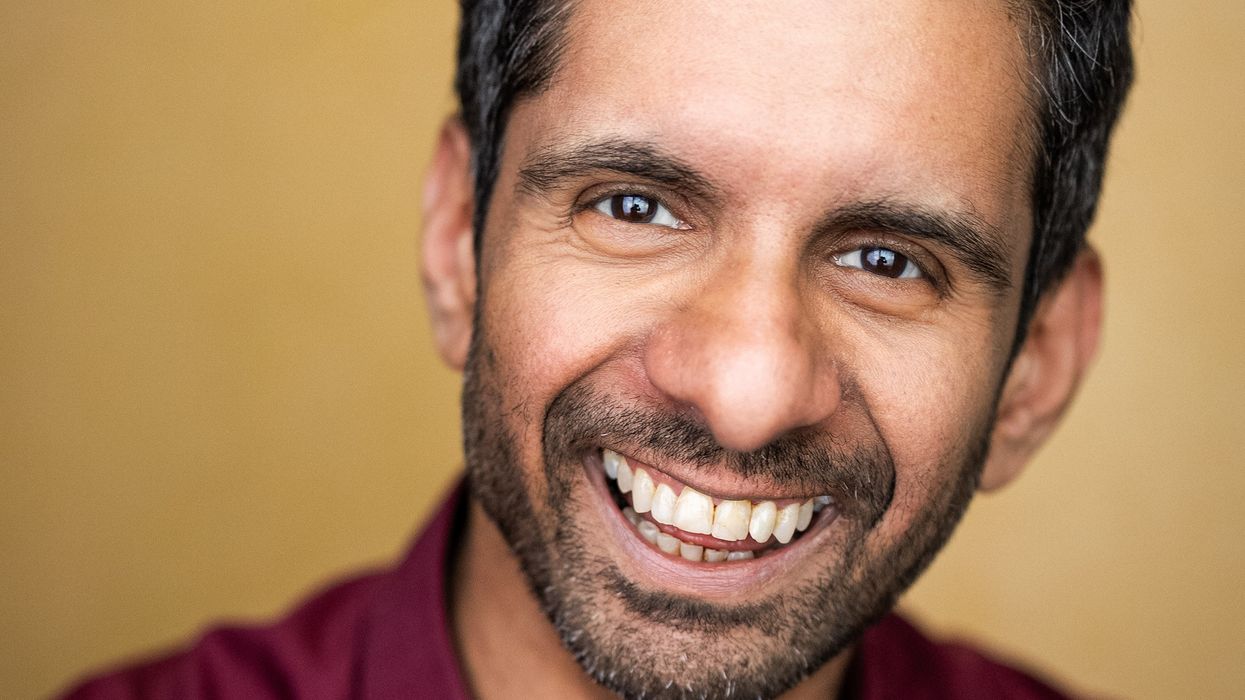A senior official who worked for the body which appoints judges in England, and accused of misleading a specialist court, should be questioned again and so should his then boss, a tribunal has heard.
Abbas Mithani KC is taking legal action against the Judicial Appointments Commission [JAC] and Information Commissioner’s Office [ICO] because they did not give him full disclosure to three freedom of information requests [FOI] he made.
He told the virtual tribunal hearing on Friday (2) that the ICO did not follow its own guidelines, and this allowed the JAC to hide information from the public.
It failed check whether the JAC had a “qualified person” to issue so called section 36 exemption notices (see comment), Mithani told the hearing.
The former designated civil judge for the West Midlands and Warwickshire wants the tribunal to allow him to question, among others, the former boss of the JAC, Dr Richard Jarvis, the former head of corporate services, Ian Thomson and senior ICO case officer, Helen Jarman.
The judge, Joseph Neville, famous for quoting Winnie the Pooh in one of his rulings, asked Mithani, “Let’s say he (Thomson) misled the tribunal, what is the consequence of its decision?”

Mithani responded, “If he is found to have misled the tribunal, and we say that he has, the tribunal has to consider whether anything he has said can be correct.
“How can you possibly say these exemptions applied at the time when you’ve (the JAC) conceded the point?
“Is there anything which you are saying is true?
“And that is an important point for me.”
Disgraced JAC
Mithani said that evidence of this only came to light after Eastern Eye received answers to its freedom of information requests sent in April 2023.
He said that under cross examination, Thomson had told a previous hearing that the JAC could not disclose certain information about those who had applied to become a judge if there were fewer than 10, because this would breach their privacy.
But the court heard that his boss had revealed information about even fewer individuals at the JAC to the Senior Salaries Review Body (SSRB) before Thomson had given evidence.
That information was never revealed to either the tribunal or Mithani, the judge heard.
“Judge, I want to put this behind me as I’m sure the JAC does, I’m sure the ICO does,” Mithani told the court.
“I’ve promised many of my colleagues that I will investigate this.
“Many of them here are so petrified of the JAC, they’ve decided not to give their names and addresses out.
“I’ve said to them I’d do the best I can to make it possible for the public to know how this utterly disgraced organisation, top-down, works.

“We have a chair person (Helen Pitcher) who doesn’t understand what the word conflict means.
“We have a head of corporate services (Thomson) quite happy to tell the tribunal untruths.
“And we have a former chief executive (Jarvis) who’s quite happy to allow that person to say one thing and then do exactly the opposite.”
Invalid opinion
Last summer, the justice secretary, Shabana Mahmood, concluded that Pitcher was not fit to head the Criminal Cases Review Commission, forcing her resignation.
Mithani also explained why he wanted to question Jarman.
“This alleged opinion (by Jarvis) post-dates the decision notice (ruling) issued by the information commissioner,” he contended.
Mithani explained that this action breached the FOIA, citing case law to promote his case.
“For the information commissioner to say they adopt the JAC’s position is, quite frankly, extraordinary.”
If someone had checked, Mithani continued, then the ICO’s decision notice should have said the JAC’s opinion was invalid.
“Because Ms Jarman finds herself in this embarrassing situation of simply not having complied with her own guidelines, we have this remarkable situation.
“The JAC says everything can be validated, all we (JAC) need to issue is another qualified person’s opinion even if that’s after the appeal (Mithani’s) was issued.
“That was a matter of pure law.”
Fractious hearing
Solicitor for the ICO, Richard Bailey, did not respond to Mithani’s accusations, but he did tell the judge that his organisation opposed Jarman being called as a witness.
But the JAC’s barrister, Natasha Simonsen, did reply on behalf of her client regarding claims of “bad faith and impropriety”.
“Those allegations are refuted in the strongest possible terms,” she said.

Simonsen countered that the JAC had dealt with Mithani’s claims when she had sent her written closing submissions to the tribunal in September 2023.
“It was put to Mr Thomson that he was lying, and Mr Thomson rejected that.
“I submitted in my written closing that there was no basis on which the tribunal could find that Mr Thomson was doing anything other than telling the truth.
“The JAC’s reliance on section 36 was upheld by the ICO.”
At one point the hearing became fractious after Mithani asked the judge to prevent Simonsen from interrupting him while he was speaking.
The JAC’s barrister later apologised.
The judge is now considering his decision.
Who judges the judges?
It is supposed to be a self-evident truth that justice is blind and those dispensing it are fair, unimpeachable and incorruptible, writes Barnie Choudhury. It is supposed to be a self-evident truth that judges are independent, and politicians should not interfere in the course of justice. It is supposed to a self-evident truth that justice is open and transparent, and as public servants we, the public, have a right to know who is appointed to such an office and how they make their decisions.
But after entering my 45th year in journalism, I am afraid these axioms are not true. Instead, as I have written extensively in Eastern Eye, judges regularly face misogyny, bullying and racism. Those seeking a judgeship are often blackballed through something called “secret soundings” where one person’s word prevents them from qualifying. And candidates languish in a Kafkaesque hell of neither knowing their accuser nor why they failed.
That is why the fourth pillar of democracy, an independent press, is so important. It is up to us to hold up that mirror to society to reflect back warts and all, without fear of favour. We must hold public power to account, from the highest political office of the prime minister to the lowest parish council and those in between who can influence how we live, how we behave, how we function in daily life.
The Freedom of Information Act 2000 came fully into force in January 2005. It forced public bodies such as the police, council and even parliament to shed light on things they wished to remain hidden. It forced parliament to reveal what MPs claimed in expenses and sent several to jail for fiddling expenses. That shows the power of the FOIA. But today, and I speak from bitter experience, those public organisations, which we pay for in our taxes, use every trick in the book to hide information to which we are legally entitled. They are meant to answer in 20-working days. I had a recent case where a council responded after more 120-days. They obfuscate by pretending not to understand your question. They claim not to keep the information you’ve requested. And get this – these decision makers and gatekeepers don’t have to be legally qualified.

Let’s break this case down and explain why it is important. Abbas Mithani, a clever jurist asked for information from the JAC. The commission refused to give it and used section 36 of the act. The ICO’s webpage reveals Section 36 to be an exemption which it ostentatiously describes as “prejudice to the effective conduct of public affairs”. In other words, public institutions can use this exemption if they believe that by revealing something it would stop them doing their job properly.
So, suppose you were a housing officer, and you wrote an email to a colleague in which you said, “I really think south Asians are spongers and are deliberately breeding so they can get council homes meant for hard working Brits”. If I got wind of that, and I wanted proof, I would either have to rely on a whistleblower or I could put in a freedom of information request. The council could argue that they needed frank conversations to do their job. But to do that it would need someone qualified – usually the boss, and in this case signed off by ministerial approval – to agree with its decision and give it permission not to reveal that information.
What we found out, through email exchanges revealed under the FOIA, was that the JAC had been issuing section 36 exemption decisions without having a person qualified to do that. We do not know how long or how many times the JAC did this. So, the second question is, what’s our next step? We ask for an internal review. Another 20-days wasted. And when that fails, we turn to the Information Commissioner’s Office.
And the ICO, which is meant to watch these institutions like hawks on our behalf, is unwittingly helping organisations get away with breaking the law. The ICO is so weak, and it has so few resources, it simply cannot cope with the daily breaches. This case, which Eastern Eye exposed, is one example.
For one reason or another the ICO failed to carry out a basic check on whether the JAC had a so-called “qualified person” to issue a section 36 refusal. It assumed that the JAC had one in place. The problem is that the JAC didn’t. And even when the ICO found out, its position was, “Well, it was a technical breach, so we’ll let it go.” That’s not how the law works. Well, that’s not how the law should work.
This case is important because if someone is making decisions not to reveal information, and the watchdog has fallen asleep or had its belly tickled, how do we know that those being appointed to dispense justice really are the best of the best? How do we know they are independent? How do we know they are not bullies, misogynists and racists? How do we know that it’s not an old boys’ club for white folk with connections? In short, how do we know that our courts really are the champions of justice?
So, our role, as journalists, must be to judge the judges on your behalf, because it’s clear no-one else is. And we need you to be hypervigilant, to fight against injustice, to challenge authority lawfully, just as Mithani is doing, because ultimately, they work for us. The clue is in the name – civil servants. They are meant to serve us, not themselves.




